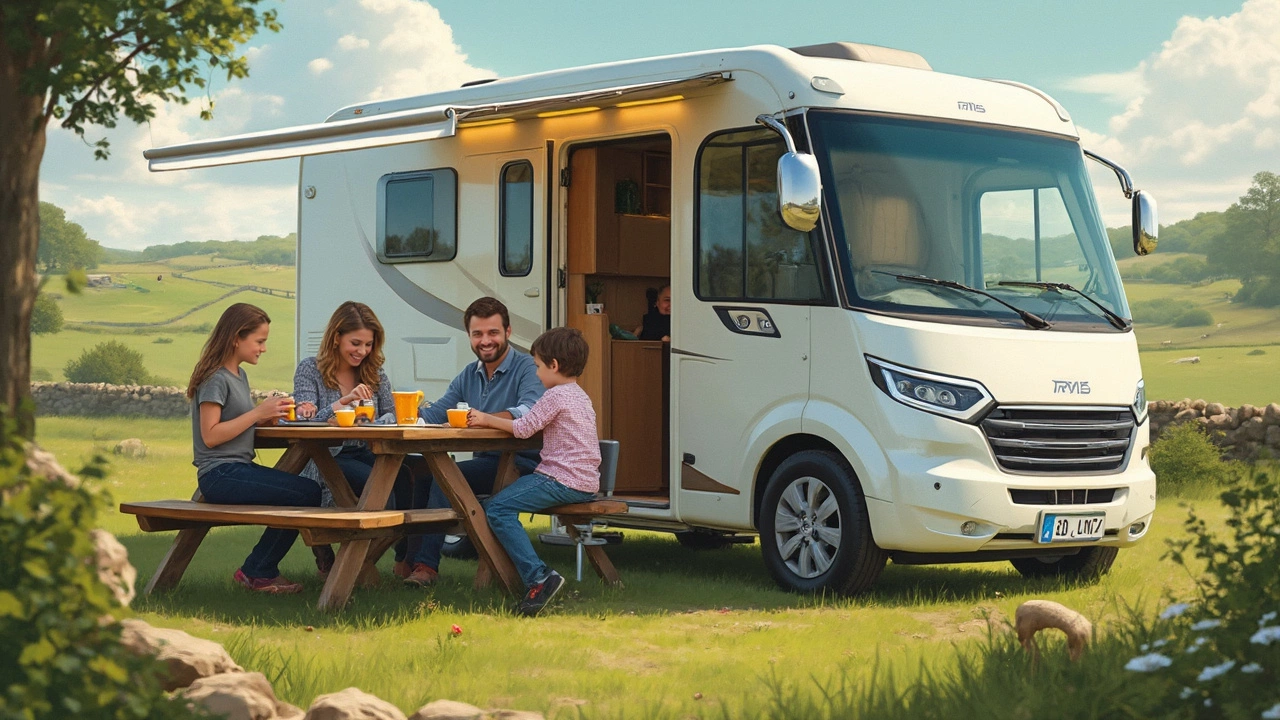Living in an RV: What It Really Feels Like
Ever wonder what it’s like to swap a house for a motorhome and hit the road whenever you feel like? It sounds great in movies, but the day‑to‑day reality is a mix of freedom, fiddling, and a few surprises you won’t find in a tourist guide.
What You Need to Know Before Going Full‑Time
First off, budget matters. A decent motorhome can cost anywhere from £30,000 to over £100,000, and you’ll still have fuel, insurance, maintenance, and campsite fees to cover. Campsites usually charge £15‑£30 per night, but staying on public land or using wild‑camping spots (where legal) can shave a lot off that number. Keep a spreadsheet of recurring costs – you’ll thank yourself when the bank statement arrives.
Space is another reality check. A typical two‑bed motorhome offers about 12‑15 square metres of living area. That means no extra closet for shoes and a kitchen that feels like a pantry. Smart storage solutions, like vacuum‑seal bags and wall‑mounted racks, become daily lifesavers. If you love a tidy home, you’ll have to master the art of decluttering fast.
Legalities matter, too. Not all UK areas allow wild camping, and some private sites have strict rules about overnight stays, pet policies, and waste disposal. Always check the local bylaws before you park for the night. The “Wild Camping Laws in the UK” post on our blog breaks down where you can stay trouble‑free.
Power and water are daily concerns. Most motorhomes come with a 12‑volt system that can run lights, a small fridge, and a TV if you’re careful. For a bigger screen, you’ll need an inverter or a 12‑volt TV – see our “Can I Run a 12‑Volt TV Straight Off a Battery?” guide for wiring tips. Fresh water tanks typically hold 100‑200 litres; plan your refill stops and consider a portable water filter if you’re heading off‑grid.
Everyday Hacks to Make RV Life Comfortable
Start each morning with a quick check of tire pressure, fluid levels, and battery voltage. A small routine catches problems before they become road‑side emergencies. Keep a basic tool kit and a spare tire in an easy‑to‑reach spot – you’ll appreciate it when a flat shows up on a remote road.
To stay warm in winter, invest in a good set of thermal curtains and a portable heater that plugs into your 12‑volt outlet. Seal any gaps around doors and windows with weather‑stripping; it cuts down on heat loss and keeps the noise out. For cooling in summer, a reflective sunshade on the windshield and a portable fan make the cabin livable without draining the battery.
Cooking on the road can be simple. A single‑burner propane stove plus a small microwave covers most meals. Batch‑cook on the weekend, freeze portions, and reheat during the week – you’ll save both time and fuel. Don’t forget a compact dish rack and a biodegradable soap for easy clean‑up.
When you need a break from the motorhome walls, look for local parks or “campervan friendly” pubs that let you park for a few hours. Some sites even offer free Wi‑Fi, which is handy if you’re working on the road. Our “Campervan Hire vs Buy” article helps you decide if owning or renting is smarter for occasional trips.
Finally, stay connected to the community. Forums, Facebook groups, and our own blog are full of people sharing advice on everything from the best dump‑station locations to how to avoid the dreaded “RV smell.” Sharing tips saves you money and keeps the adventure fun.
Living in an RV isn’t for everyone, but with a realistic budget, solid planning, and a few clever hacks, it can become a rewarding way to see the UK and beyond. Ready to roll? Start small, learn the ropes, and you might just find that your motorhome feels more like home than you ever expected.
RV Living Costs: How Much Does It Really Take to Live Fulltime in a Motorhome?
Curious about the real costs of living fulltime in an RV? This article breaks down actual expenses like site fees, utilities, travel, and insurance. Find out how different choices and habits can make or break your budget, and pick up simple tips to keep your costs in check. We'll look at what drives up costs and how full-timers save money. By the end, you'll know what to expect and how to avoid the most common money traps on the road.
